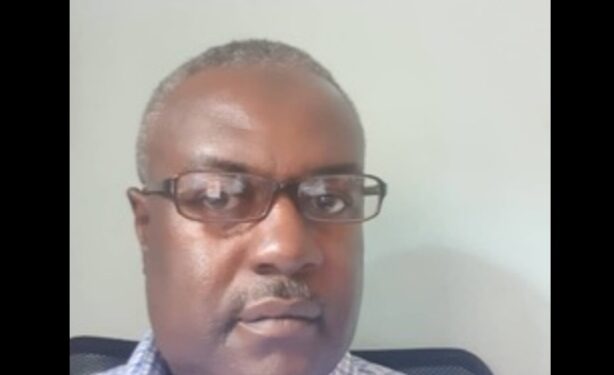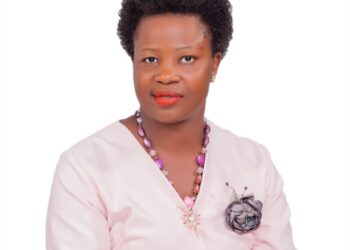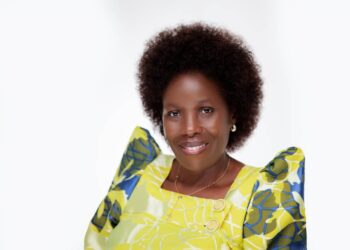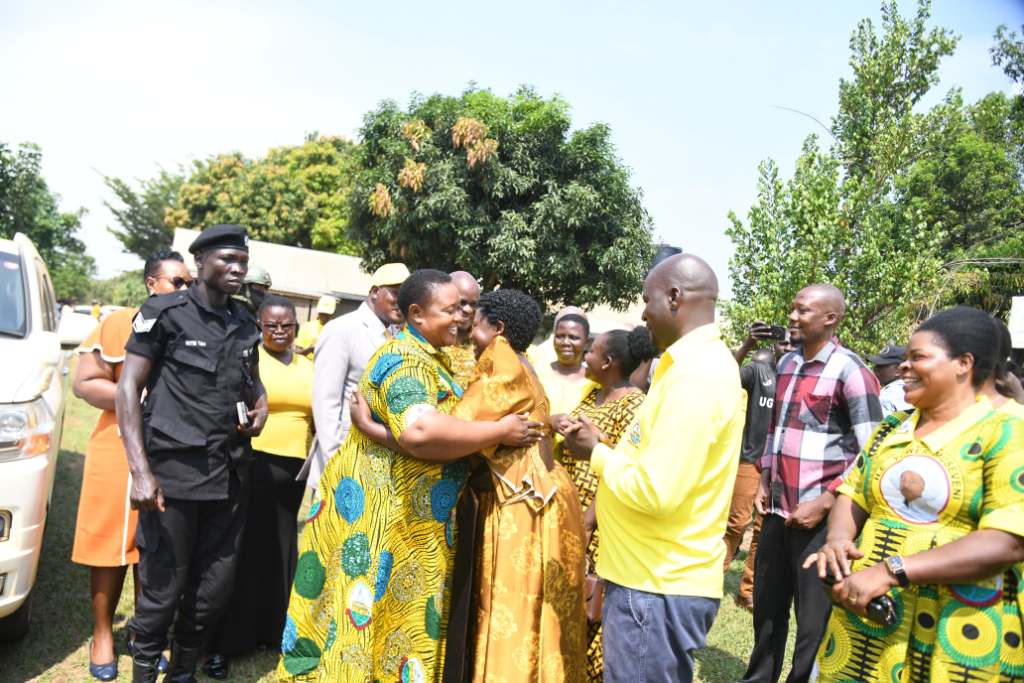Assalaam alaiqoum warahmatullahi wabaraka’tuh,
The fallacy of Ad hominem occurs when, instead of addressing someone’s argument or position, you irrelevantly attack the person or some aspect of the person who is making the argument. The fallacious attack can also be direct to membership in a group or institution.
Muslim leaders held a meeting with H.E the President of Uganda and this has caused some mixed feelings amongst a section of the community. One cannot ascertain the number or representation among the entire Ummah which seems minimal but the loudness with which social media portrays the disgruntled is kind of noticeable. These are platforms that allow anyone from anywhere to make comment on anything regardless of their intentions, knowledge and understanding of the issue at hand and that is conventionally okay. But the many videos and audio clips from all and sundry attacking individual personalities portray the naivety and ignorance on facts which perhaps maybe none of the perpetrator’s fault but are quite disconcerting.
Issues raised include among others, involving a non-Muslim in Muslim affairs thus questioning the intervention of the President of Uganda. That Kibuli was not or was mis represented at the meeting. That those involved are promoting selfish interests.
- That non-Muslims were involved:
This is most probably referring to President Yoweri Museveni. The President is involved in Muslim affairs as a Leader who is responsible for the peace and tranquility of all citizens of Uganda Muslims inclusive. Indeed, his absence would call for the same question as to why Muslims are being ignored. So, like all faiths in the country, Islam was introduced through the prevailing leadership, and all have continued to enjoy the goodwill and support of subsequent leaders. But most importantly, one of the most important Islamic injunctions is obedience (with goodness) to constituted authority and the leaders in the society. So, when Muslims present issues to H.E. the President they are in line with the faith.
Allah says in the Qur’an Surat An-Nisa’ (chapter 4:59), “O ye who have believed, obey Allah, and obey His Messenger and the people of authority amongst you. And if you disagree over anything, return the matter to Allah and His Messenger (Muhammad, pbuh) if you truly believe in Allah and the Last Day. That is the best [way] and best in result.” The Prophet (pbuh) said: “Whoever obeys me, has indeed obeyed Allah; whoever disobeys me, has indeed disobeyed Allah; whoever obeys the leader, has indeed obeyed me; whoever disobeys the leader, has indeed disobeyed me”. (Bukhari and Muslim).
It is therefore compulsory to obey and follow leaders and constituted authority as long as they do not command us to disobey Allah and His noble Prophet Muhammad (pbuh) according to Islamic scholars. Indeed, the Prophet (pbuh) further said: “Hear and obey even if you are beaten (unjustly) and your wealth is wrongly confiscated (by the leader) still obey him.” (Muslim and Abu Dawud). However, there is no obedience to leaders and constituted authority when they command their followers to disobey Allah and His Prophet, Muhammad (pbuh).
The Presidents’ intervention is geared towards uniting and he is not reinventing any wheels here. Current Uganda Muslim Supreme Council (UMSC) was constituted after intervention of a President Idi Amin Dada in his position as a leader. Infact the initial Muslim unity conference was chaired by Major General Emilio Mondo and the meeting to constitute the first UMSC was guided by James Peter Nkambo Mugerwa in his capacity as Minister of Justice and Constitutional Affairs. The last two are non-Muslims but helped formulate the basis on which Muslims of Uganda have run their affairs since.
Therefore, questioning non-Muslims involvement is not only false but in contradiction of universal human dignity enshrined in Islamic teachings. The Qur’an gives various reasons why each human being must be honored and dignified on account of being human and irrespective of his or her chosen beliefs. Such honor is symbolized by the way the Qur’an describes Allah’s creation of the human in the best of molds and commanding the angels to bow down in respect to Adam. The Qur’an describes the human as the trustee of Allah on earth. Allah created everything on earth and in the heavens for the benefit of the human race.
- Promoting selfish interests.
FACT: No one has come out to say unity is bad. In fact, the statement made by scholar Dr. Kiggundu of Kibuli starts by expressing ‘sincere’ gratitude to H.E the President for his, quote, ‘untiring efforts and unwavering commitment towards the peaceful resolution of Muslim leadership affairs’. Even the wild hounds claiming to be concerned Sheikhs and the sloshed one etc. marauding obscenity and all kinds of abuses without necessarily explaining the facts have not denied that.
So, if unity is indeed a good thing why would one feel displeased when Mufti Mubajje, Sheikh Abdul Kamulegeya, Sheikh Ndirangwa, Sheikh Kamoga seat together and inform the President that they are ready and willing to work together for Muslim unity? The Chinese have a saying that a one-thousand-kilometer journey starts with a single step. Why would one expect a conflict that has been around for over 15 years to end in a day or two at Entebbe and with everyone on board? Even in school some learn faster than others, so the fact that not all who broke away from Mubajje are at the moment willing to work towards unity is not strange for any lucid mind. Fact is all those at Entebbe were known nemeses. Sheikh Kamulegeya led the process which formed the pressure group based at Kibuli.
Both Sheikhs Ndirangwa and Kibaate have been leaders at Kibuli whereas Sheikh Kamoga was not only a critique of the Old Kampala administration but also sentenced to life in prison on charges alluded to fighting against H.E. President Museveni. Sheikh Kamoga’s presence at State House taking pictures with President Museveni is indeed a big milestone for whoever brokered the meeting. Therefore, for any reasonable mind, the Entebbe meeting alone was major milestone in the efforts to reunite the Ummah (Muslims), quite historical and most probably the only tangible step ever taken since these conflicts started.
It is thus diversionary to depict individuals as self-seekers when their initiative is indeed the only substantial effort so far made towards unity. It is dishonest to make monetary accusations without any evidence of the same other than speculation based on hearsay. It is a fallacy of Ad hominem by the seemingly doubtful group to focus discussion on the messenger without addressing the issues being corrected.
- That Kibuli was not or was mis represented.
It is a fact that Sheikh Kamulegeya, Sheikh Ndirangwa, Sheikh Katerega were all once leaders at Kibuli and have since left. A statement made by the erudite Dr. Kiggundu states that the “Supreme Mufti was neither invited nor involved in the purported unity talks”. That is correct because at the time of forming the pressure group and engaging with Old Kampala, Sheikh Galabuzi was still an Imam at Mpererwe mosque which incidentally is under the Old Kampala leadership. Thus, after Sheikh Kamulegeya, Sheikh Ndirangwa, Sheikh Katerega and others left Kibuli, they opted to continue with the pressure group activities pursuing unity and that does not necessarily mean they represented Kibuli but the interests of the group. So, if Sheikh Galabuzi or his hand-picked representative/s are not at State house, why would that stop, the ongoing talks”?
To put this in context, let us go back a little on who is and what makes Kibuli? The 1972 Muslim unity conference at Kabale brought together all Muslims including; the Uganda Muslim Community (or Kibuli Group), led by Prince Badru Kakungulu; African Muslim Community (Bukoto-Nateete) led by Sheik Zaidi Mugenyiasooka; the Zukuli group headquartered at Kawempe, led by Sheik Mivule, and the National Association for the Advancement of Muslims (NAAM), of Wandegeya led by Sheikh Abdu Obeid Kamulegeya under one umbrella, the Uganda Muslim Supreme Council (UMSC). President Amin graciously saw to it that the body found a neutral headquarter at Old Kampala hill.
Although this UMSC has had its ups and downs, the fact remains that no other parallel body exists at its level. Indeed, after internal conflicts for a while, the UMSC wrote a new constitution signed on 5th December 1987 by Prince Badru Kakungulu as Chairman Uganda Muslim Supreme Council, Asuman Mbubi Deputy Chairman, Wakinyankali Z Deputy Chairman and Yusuf Isa Byekwaso Acting Secretary General. It is through this constitution that Sheikh Ramadhan Mubajje was elected and holds the office of Mufti.
It’s true that during the reign of Sheikh Mubajje some properties were sold which angered a cross section of Muslims. For this reason, a number of prominent Muslims formed a ‘pressure group’ which was housed at Kibuli to i) ensure that Muslim properties are restored. ii) improve and or change leadership of UMSC. This was never to become a parallel body at the level of UMSC in perpetuity. Indeed, a body at Kibuli which was based on discontent of individuals and not built on national consensus, cannot be formed to rival the UMSC in place since 1972 and now under the auspices of the 1987 constitution signed by non-other than the Late Haji Badru Kakungulu.
The concerted efforts of the pressure group employed three approaches to achieve their espoused aims, namely; legal, political and mobilization.
The Legal effort: Through courts of law, a suit against Old Kampala administration for wrongful sale of properties was filed. However, Magistrate Margaret Tibulya’s ruling exonerated Sheikh Mubajje and his co-accused trio Hassan Basajjabalaba and Idris Kasenene for the sale of two properties that belonged to Uganda Muslim Supreme Council. In her judgment Tibulya said the trio had acted right in their capacity as trustees of UMSC property.
The mobilization effort led by Late Sheikh Kayongo with a very strong team including Late Sheikh Muzaata and many others embarked on an effort to popularize the effort with the hope of forcing Old Kampala to concede. Of late, this strategy seems to be more focused on demonizing fellow Muslims and enshrining a parallel system as opposed to the initial intentions. This has partly contributed to prolonging disunity while ensuring a change of guard from one Sheikh to another amidst in fighting. Little or no success towards the initially intended objectives has been realized to this date. On the contrary, Old Kampala has seen wide steps of development whereas the pressure group remains stagnant and occupied in ceremonies and whining.
The political effort involved and persuaded H.E. the President to intervene and he appointed a Committee with the task of looking into the Muslim community wrangles. The team comprised of 3 members from the Government, 3 from Kibuli and 3 from Old Kampala. In June 2014, the committee of: Isaac Musumba who represented the Government, Hajji Mohammed Kisambira, Sheikh Kirya, and Dr. Faizal Mukasa representing the Kibuli team, and Dr. Kasenene, Sheikh Sesimba and Hajji Musana representing the Old Kampala team presented their report.
At the handover, Chairman, Prof. Kabwegyere revealed that basing on their findings all the Muslims in Uganda want unity. The committee recommended that the unity will be guaranteed by:
- a review of the Uganda Muslim Supreme Council constitution.
- all the Muslim properties should be under a property trust so that they are registered and protected against encroachment. They observed that this will eliminate one of the major causes of wrangles within the Muslim leadership which translates into conflicts in the community.
- that there should be a Judiciary tribunal to address all the Muslim property wrangles and put an end to them.
Since 2014, these recommendations had not seen light. So, it’s imperative to ask why? Truth is Muslims felt cheated and greatly hurt for a mosque in the center of the city being taken over for other activities and being that the new owner was a non-Muslim made it worse. Secondly, the committee recommended a process to streamline leadership through constitutional review and yet, many on the pressure group preferred instant gratification through removal of the Mufti. This was not easily achievable because the options available through the UMSC constitution were unattainable to cause a removal of Sheikh Mubajje from office and thus he remained the rightful leader. The government continued to recognize Old Kampala leadership but extended some goodwill to the pressure group as well.
This resulted into a stalemate which has only been removed through the goodwill of H.E President Museveni. He offered to promote the Kabwegyere recommendations including constitutional reforms, and also to reimburse the purchasers of the properties so that they are reverted to the Muslim community. Some leaders headed by Sheikh Abdul Obeid Kamulegeya maintained dialogue with President Museveni in pursuance of the property recovery and this came to fruition after stern negotiations with the likes of Drake Lubega etc.
Turning point was when hand over time for the rescued properties coincided with election politics where some leaders had opted to side with the Go Forward group against Museveni. Those opposed to Museveni suddenly developed amnesia forgetting the process and started to see any gesture by him as a political manipulation and those involved as betrayers. This continues to today where NUP and other opposition are more welcome to some groups.
Thus, group and individual efforts to actualize the Kabwegyere recommendations have always been welcomed by Old Kampala but vehemently declined by Kibuli. In fact, Sheikh Abdu Kamulegeya was ostracized because of his advice to reach out to Sheikh Mubajje for talks. His argument was that opposing Old Kampala for all these over 15 years had yielded somethings but generally stagnated development of Islam. In fact, one of the main aims of the pressure group which was the return of properties had been achieved. Why wouldn’t the group open discussions leading to achievement of the second aim which is to improve or change leadership?
Without giving any alternative way or roadmap towards unity, Kibuli has constantly remained adamant towards reconciliation efforts citing the same reasons as outlined in Dr. Kiggundu’s statement when he says they are open to honest and genuine efforts without mentioning or initiating any. This looks exactly like the initial pressure group host place has become a hostage of its own creation. Having been around for long, some individuals started to see it as power in perpetuity where unity would seem like a downgrade and loss of positions or status. Otherwise, why would all those who abandon the Kibuli hill agree with the unity efforts?
Therefore, it is not surprising that the Entebbe meeting is abhorred, loathed, detested by some. If one flips the coin and looked at the other side, it is very clear that the absentees are indeed against unity. One even questions the candor in Dr. Kiggundu’s statement when he says they are open to sincere engagements leading to Muslim unity. This is because the only tangible results in the pressure group’s effort have been yielded through involvement of H.E. the President and engagement with Sheikh Mubajje. A constitutional review process is underway and properties at William Street, Kololo High School and a factory have been rescued through H. E’s benevolence.
The politically initiated Kabwegyere report offers the only available framework through which unity may be achieved. By amending the constitution and conducting grassroot to pinnacle elections the leadership question will be addressed. It further recommends a trusteeship for safeguarding properties going forward. These are the very reasons, the pressure group initially housed at Kibuli was created for. Unity, therefore, extinguishes relevance of the pressure group which is a bitter pill to swallow for some.
To borrow the same language used by Dr. Kiggundu, it would be more honest, genuine, and sincere for anyone against the Entebbe meeting or unity talks to challenge with offered alternatives. The ad hominem of denouncing and calling its promoters names will not necessarily improve the status quo. For how long and for what authentic reasons will Muslims remain negative and point out only those things that keep them in the quagmire of disunity?
The potential role of peacemaking and reconciliation in this conflict has become a necessary phenomenon. Religious ideologies have been hijacked by their very adherents in order to legitimize actions driven either by political and power interests or due to a general sense of frustration and desperation to have control over Muslims’ affairs. The arguments for the importance of the role of reconciliation in conflict resolution point to the enormous mobilizing power of disgruntled groups, code of ethics, high human principles, religious norms, and values highlighted by specific Islamic teachings and concepts about conflict and reconciliation in order to attain peace.
Folks let’s give dialogue a chance.
Abbas S Muluubya
4th May 2022
Do you have a story in your community or an opinion to share with us: Email us at editorial@watchdoguganda.com














